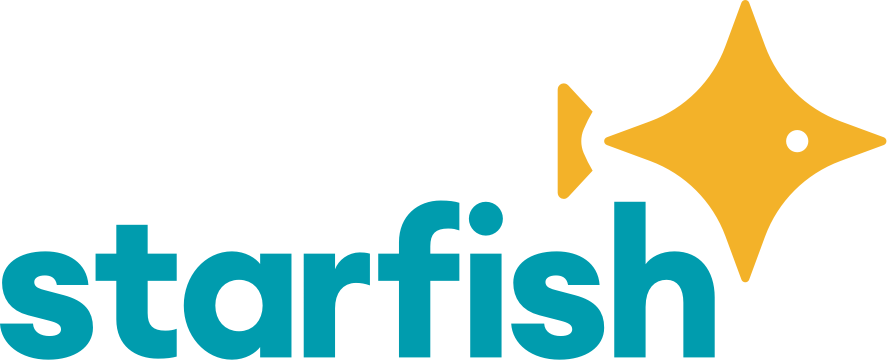As the STARFISH Pilot project gets underway, we sat down with Nikos Anagnopoulos, a renowned fisheries expert in Greece, to learn more about these traditional fishers, the context, and their needs.
What are things like for small-scale fishers in Europe? Especially in Greece and the Mediterranean?
Small-scale fisheries (SSF) have an important role in the EU, for the oceans of course, but also from an economic and social perspective. EU fleets are dominated by small vessels: they account for 85% of all fishing vessels and 40% of employment. In the Mediterranean Sea and Black Sea, they represent over 84% of the fishing fleet and 44% of the fishing capacity. They are at least 62% of the total workforce onboard fishing vessels (at least 150,000 fishermen and in many related businesses).
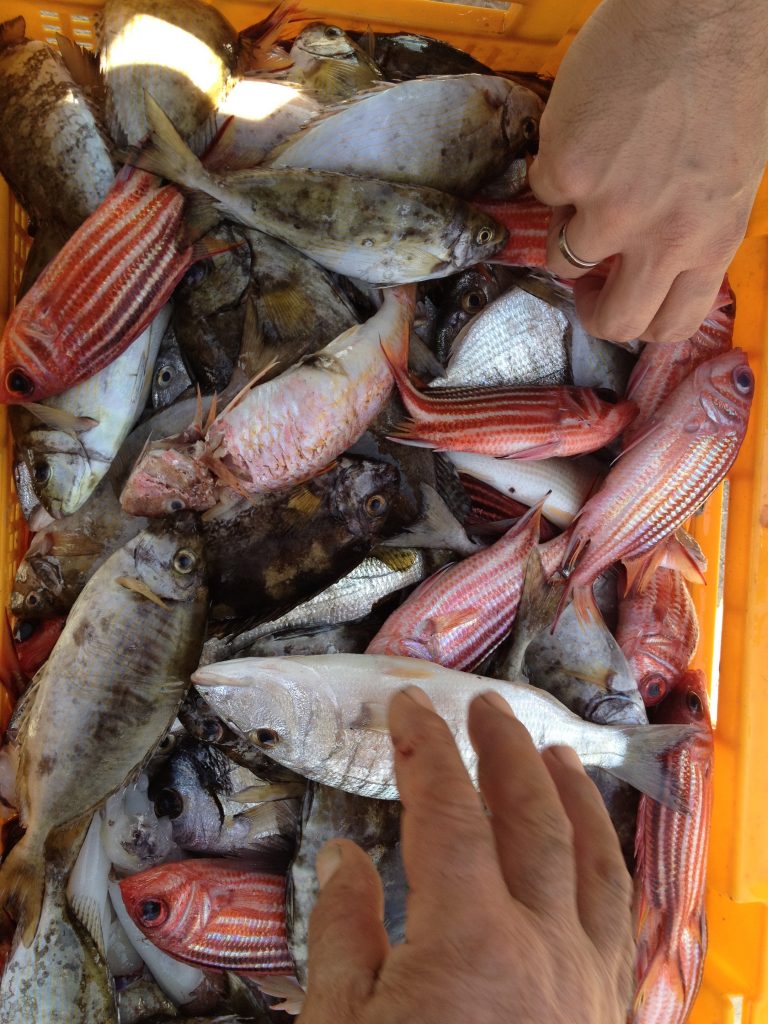
Greece has the greatest number of small-scale vessels in the EU: there are approximately 15,000 SSF vessels working with nets, long lines, and traps. A small number, about 150, have a specific license for small trawlers. These trawlers do not work like the usual ones: they fish at different depths and distances from coastline and they don’t trawl during a fishing trip, but stay at a specific place. Most traditional fishermen use nets, longlines and traps.
Seasonal restrictions are in place for certain small-scale fishing gear in certain areas—there are specific Greek regulations that go beyond European ones. In Greece, small-scale fishing vessels are defined as less than 12 meters long. In general, these fishermen are not obliged to have a VMS (Vessel Monitoring System); only those with the beam trawlers and those who fish large pelagics. For these fishers, if the vessel is less than 12m, they must have a VMS, but this is only about 500 vessels. The majority of small fishers have no obligation or regulation to be monitored.
What problems are they facing?
They face a lot of challenges! But the main one is economic viability—studies show that it is difficult to have a viable business. They don’t earn enough to make a living, so all these small fishermen must have another business on the side. They can’t be legally considered professional fishermen; for that, they would need to have at least 50% of their income from fisheries and spend 50% of their time fishing. These fishers would prefer to fish full-time, but this is impossible due to the weather and the short tourist season. Either they can’t sell fish during the winter, or they sell at ridiculously low prices.
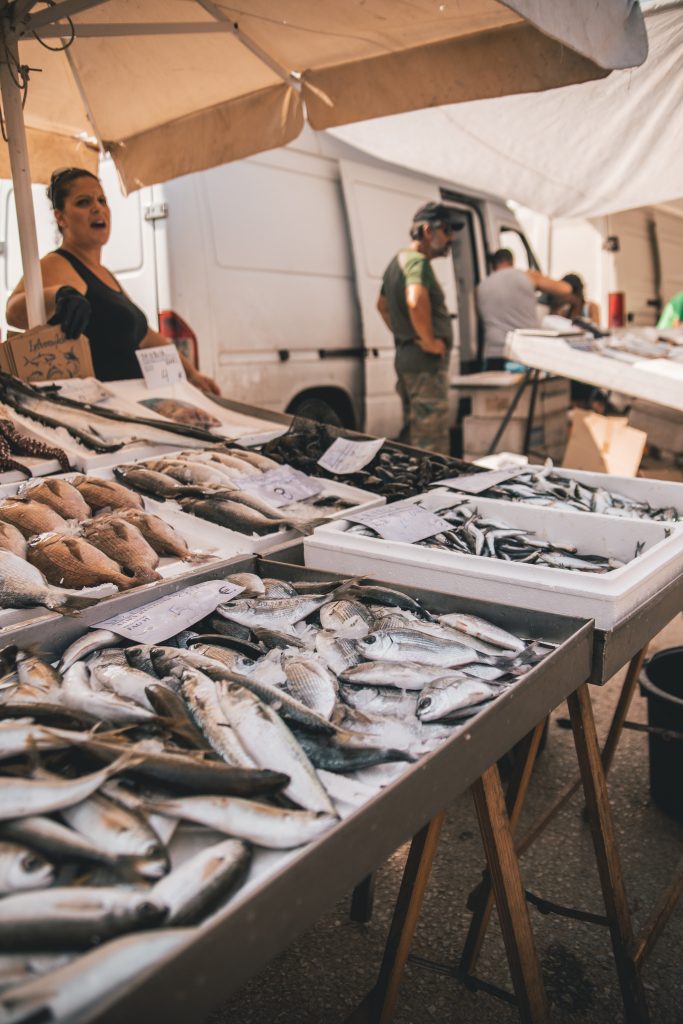
Small-scale fishers also have big problems with large industrial vessels, especially in the Eastern Mediterranean. Because of this competition, SSF must sell their catch to tavernas (local restaurants) and direct to families. The quantities they can catch are not as big, especially because they use nets and longlines. Most of the Greek production is sardines and anchovies, which are caught with purse seiners and trawlers, not the gear used by SSF. Small-scale fishers catch only about 20-25% of all the fish caught in Greece, and since this is done by 15,000 vessels, you can easily see why it’s hard to have a viable business.
Finally, safety is also an important concern for SSF—in Greece we have a lot of coastline and weather problems, so this becomes a very serious issue because these are small boats that land in small fishing harbors. There are many islands and large distances between the fishing grounds and the harbor or port where they land to sell. If they have problems at sea, they can’t use their mobile phone to get help, because in many places there is no mobile phone coverage. That’s why I think a VMS would be helpful for them.
How would a Vessel Monitoring System help?
First, it would help with the problem of safety. If their motor breaks down, they could ask for assistance and we would know where they are. Then, it could help with communicating between the fisherman and the taverna (restaurant); he could sell them his catch before arriving at the port. This gives these fishers access to a market outlet ahead of time, before they arrive at the port.
Why don’t small-scale fishermen already have a VMS?
The standard VMS systems designed for industrial fisheries are difficult to put in small boats. There is not much space, so if you try to install the same device it is a challenge. Also, there is no power onboard, and industrial VMS needs a power source to transmit via satellite. Then there is the cost of traditional VMS and the yearly maintenance—coastal fishermen cannot not afford these systems. They need a VMS, but they must have a solution specifically designed for their needs.
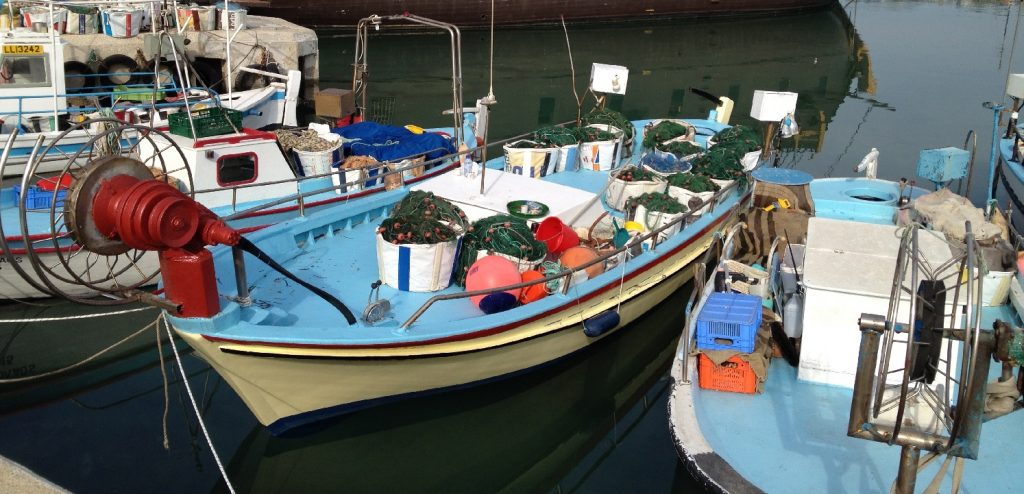
Do fishermen want to adopt tracking technology?
When we talk with them about this, they say OK if the data is for their use. This is the case with the STARFISH 4.0 pilot: the data is not given to the authorities! The fishermen keep the data themselves for recording their best fishing spots. They also like the idea of weather reports and added safety! Finally, if they are connected with the harbors where they want to sell their catch, they know the prices. Then they can choose to sell in the port with a higher price. This would be helpful and useful for them.
What about marine resources? Are the fishermen concerned with preservation?
These days, they believe yes, we must support marine protected areas, we must protect fish stocks so they increase. They agree that it’s better to close zones when needed to preserve the stocks, but they want to decide when and where. If fishermen think long-term, they know they’ll benefit from better management of fish stocks. In the future, they want to make sure there will be fish to catch and they will have an income.

What about the environment?
This is a serious problem. All kinds of fishing gears and all methods have consequences on marine resources. Generally, the gear used by small-scale fishermen have less impact on the environment than say, trawlers or seiners or other kinds of massive gear. But they still have an impact. Invasive species are another important issue in the Mediterranean, and fishers are concerned about this. They could help managers and scientists by identifying those species in a mobile app, for example.
What do you think of the NEMO system being trialed in STARFISH?
NEMO is a VMS designed for small-scale fishers and so it matches their needs. It is new in this industry and seeks to fill all the gaps in protecting and managing small-scale fisheries. NEMO is affordable and uses both mobile networks and low-cost satellite. It also doesn’t require power on-board because it has a solar panel. We believe it corresponds to their needs.
Why did you want to be part of the STARFISH pilot?
We wanted to work with CLS because they have deep and broad expertise in the fisheries sector. They know what is going on today with small-scale fishers. They found that there was a gap in existing VMS devices, and they are trying to fill it with all the new technologies and services coming in the sector. When we were contacted by Sylvie Giraud and Benoit Albagnac and the team at CLS, we could see that they had researched everything happening on this issue around the world. They have created a device and a system that combines all these new ideas and new initiatives; and they knew how to add value for the users. They called us looking for a company with connections and local presence in the Mediterranean. When we talked together, we saw that Greece would be a great test for the new NEMO system. So, we were excited to partner with them on the STARFISH pilot.
What benefits do you expect from STARFISH?
This pilot project will test the device in real-time, in real ocean conditions, with the structure of a Mediterranean fleet. The Greek SSF fleet is the biggest. With the user feedback collected, CLS can further refine the device for commercialization.
I also think it’s important for awareness and fishermen engagement, because there will be many workshops and surveys to get their feedback. We want them to understand this is something helpful and not a new problem. We want to change their minds, and have them become familiar with new technology. I want them to see the benefits of the NEMO system for them. If the pilot fishermen are happy with it, then by word of mouth it will spread. All the coastal fishermen will know about it and say, “Yes, I want to try it!”
Can you tell us about yourself and the work of APC?
I was trained as a biologist in aquaculture. For more than 30 years, I have worked in fisheries, the environment, marine studies, and aquaculture and rural development. Specifically, for the fisheries sector, at APC we are working with fishermen’s federations. We work on fisheries projects, either small-scale fisheries or medium-sized trawlers and purse seiners in Greece. We have also worked in aquaculture for over 30 years, so we have a broad view of the whole fisheries chain in Greece.
APC works as consultants for both the private and public sectors, and as a technical consultant for agriculture and fisheries ministries for programs in Greece. I also work as a fisheries adviser to the EU and for the Greek Ministry of Agricultural Development on EU fisheries regulations and the EU Fisheries Fund. For example, we advised on how to best allocate the EU Fisheries Fund in Greece.
Nikos Anagnopoulos, President of APC Consultants
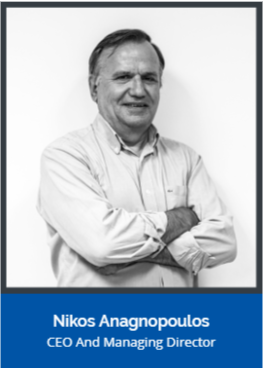
President and CEO of APC Fisheries Consultants, Nikos Anagnopoulos was selected by the European Commission in January 2018 to be part of its marine expert group for a period of 3 years.
APC is a consulting firm, based in Athens, that provides services for developmental and spatial planning, environmental issues, implementation of investment plans, and planning, management and evaluation of National and EU programs. APC specializes in fisheries and aquaculture, rural and regional development and the marine environment.
